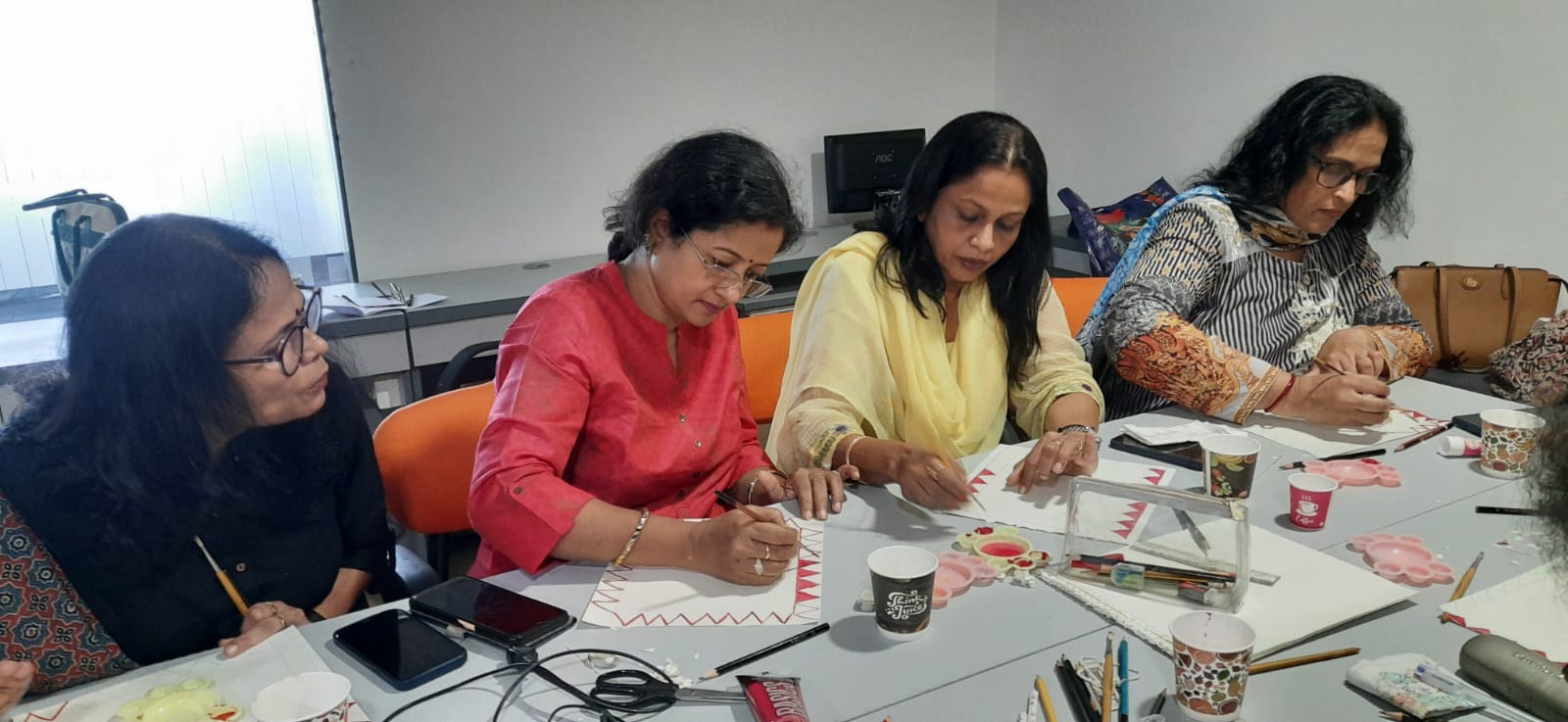On a bright Saturday afternoon in an office in Vastrapur, a group of 20 high society ladies sit around a conference room table learning techniques of Warli tribal art under the tutelage of Payal Rathawa. The 26-year-old transgender artist from Rajkot is in Ahmedabad at the invitation of the Swayam Foundation, an NGO that aims to transform individuals and communities through creativity. “Payal is already a famous artist in Rajkot,” says Swayam’s Archana Verma. “We wanted to mainstream her in Ahmedabad as well.”
Payal is a woman of many identities. She left her tribal village in Surendranagar district after finishing school and moved to the city of Rajkot where she established herself as an artist after much struggle. “My tribal identity is the most important for me,” she says. “We believe we must not do anything that dishonours our ancestors. It is what kept me from joining the hijra community. I consider myself to be a modern transgender woman. These two identities influence my art, which has earned me respect in society.”

As a teenager, Payal found small-time work washing dishes in a pani-puri stall, selling bottled water and collecting gobar from cow sheds. She was also a sex worker in Rajkot’s Bhavnagar Road red light area and says, “There is nothing wrong in sex work. It is an honest profession and it helped me get through difficult times.”
Payal used her earnings to finance her education and her academic performance was good enough to get her admission into an engineering college. Meanwhile, she started a registered NGO called the Saptarangi Ardhanari Foundation, with ten other LGBT (Lesbian Gay Bisexual Trans) friends, to help the poor on Rajkot’s streets. All that came to an end when she had a run-in with the hijra community in 2021. “They stripped me in the street, beat me and made a video of it for everyone to see on-line. The incident completely changed my life. I lost my job and dropped out of college,” she says.

Why is there so much tension between the traditional Indian hijra community and the more modern transgender women? “The hijras think we are different and don’t like us moving ahead of them,” says Payal. “They have less education, less knowledge, and a rigid hierarchical structure. Plus, there have always been some very aggressive elements within the hijra community who can be dangerous.”
Today, Payal is back on her feet again and has conducted over 25 tribal workshops over the past two years. Her work adorns the walls of homes, highway restaurants, schools, colleges and NGO offices across the country, from Arunachal Pradesh to Telangana and Kerala. The Gujarat government commissioned her to paint the walls of Sabarmati Central Jail, as well as the central jails of Vadodara and Rajkot. That makes for a steady income, since she charges Rs 80 per square feet of wall space.

Payal’s work has taken her to foreign shores as well. She recently attended a conference of indigenous art in Sri Lanka. In her other role as a trans activist, she was recently in Mexico to attend a workshop. Payal has attended LGBT Pride events in Gandhinagar, Ahmedabad, Vadodara and Rajkot but is currently taking a break to work on micro issues.
“I want to help create a better education system for trans kids, who often drop out of school because they do not get the support they need. I also believe trans people should receive special consideration in getting into vocational courses we are naturally good at, like fashion, make up, choreography and hair styling fashion,” she says
Besides painting, Payal is also a writer, contributing to local papers in Rajkot. She’s even collaborated with an NGO to script the dialogues of a yet-to-be-released film on adivasi women, called Chadotaru.
Also Read: Dhanraj Nathwani’s ‘Rajadhiraaj: Love Life Leela’ Musical Mesmerises Audience At NMACC











